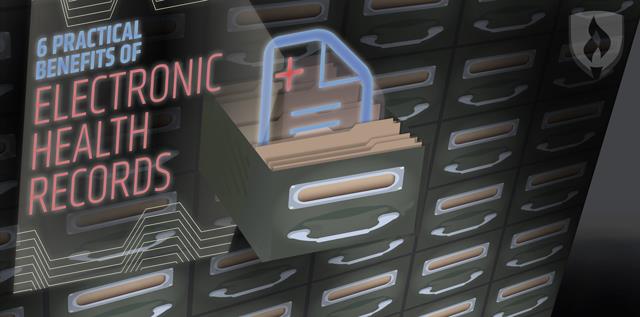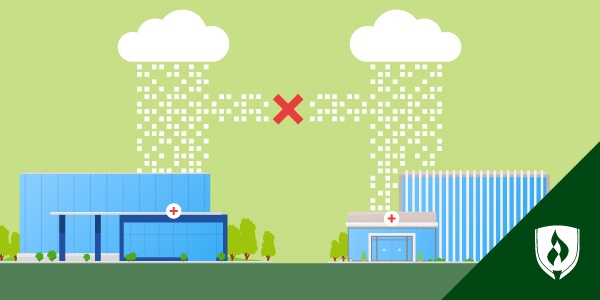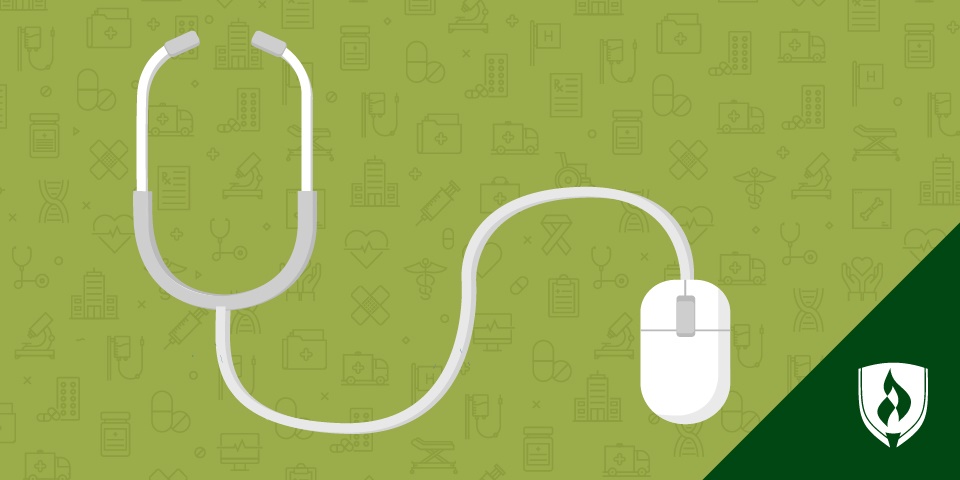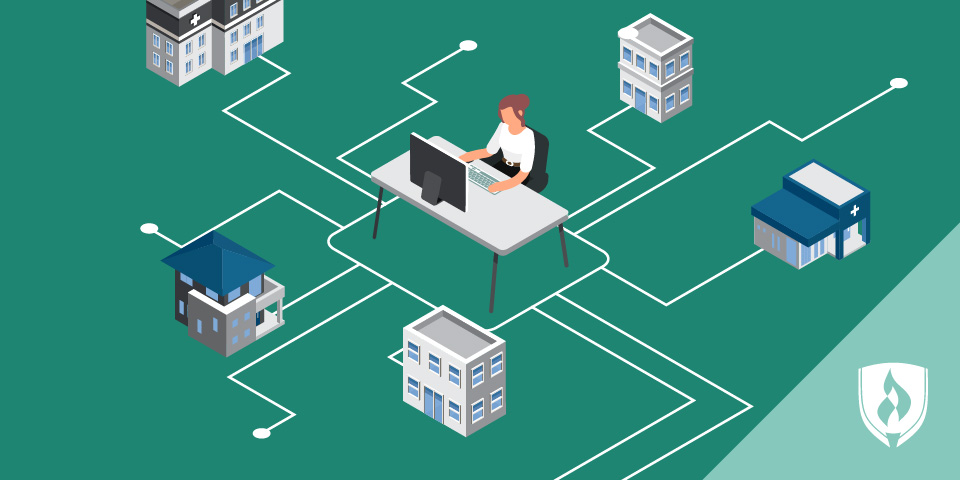21st Century Healthcare: 6 Practical Benefits of Electronic Health Records
By Will Erstad on 10/10/2016

Electronic health records (EHRs) are a hot buzzword in the healthcare industry these days. This digital version of a patient’s medical records is the way of the future for healthcare providers, but the transition to EHRs hasn’t always been easy. Some providers have resisted the cost and time it takes to implement these new standards.
Adoption of EHRs received a shot in the arm due to 2009’s Health Information Technology for Economic and Clinical Health (HITECH) Act. The act implements a series of benefits and penalties designed to encourage healthcare providers to adopt EHR systems.
Since then, a lot of work has gone into ensuring healthcare providers across the country are compliant with the HITECH Act. But as providers scramble to achieve compliance, the positive end results of the EHR initiative are getting lost in the shuffle.
There are plenty of benefits of electronic health records for both healthcare providers and patients alike. Keep reading to learn just some of the ways EHRs are making changes for the better in the healthcare industry.
6 Advantages of electronic health records
1. They’re easier to access
Facilities that have adopted EHR systems allow caregivers to easily find the most up-to-date medical records available for a patient. This has the potential to cut down on preventable medical errors. Electronic records also allow physicians to spend less time digging through files and more time actually caring for their patients.
Dr. Kyle Stanley, an implant and biomimetic dentist who works in an office with an EHR system and an office without, says the EHR system makes a big difference in how his time is spent. “At my office with paper records, I spend a lot of time sifting through charts and pictures,” Stanley explains. “At my office that uses electronic records I can pull them up in a matter of seconds. This saves time for both providers and patients.”
2. They’re better for the environment
The big-picture numbers of paper usage in the medical field are daunting. In 2014, there were more than 34 million admissions into registered US hospitals. If each of those admissions is tied to a paper medical record, and at an average of 200 pages per record, you start to get an idea of just how much paper would be used without electronic health records.
While it’s true that storing electronic data still requires natural resources, EHRs are much more efficient and leave a smaller environmental footprint. Going paperless is a huge step toward environmentally friendly practices in healthcare.
3. They don’t require as much space
If being a better environmental steward doesn’t really move the needle for you, maybe this will. The massive number of paper health records mentioned above all need to be stored somewhere – and that storage space isn’t typically cheap.
The transition to electronic health records allows hospitals and clinics to drastically reduce the amount of physical storage space they need. This allows them to either save on overhead expenses or repurpose that space for other uses.
4. They can enable big-picture improvements
“In the future, I envision technology that will be able to interpret digital x-rays and information on patient charts, and even be able to make diagnoses that a doctor’s naked eye might miss,” Stanley says.
Imagine having software that can scan a patient’s medical history and flag any new treatments that may result in unexpected adverse effects. Sounds useful, right? These scenarios aren’t in the realm of science fiction.
Tech companies and healthcare providers are partnering to search for ways to analyze the data gathered in EHR systems and use it to improve patient care and outcomes. But none of this would be possible without the implementation of electronic health records.
5. They can reduce errors
“When it comes to accuracy, unfortunately doctors aren’t known for their fine penmanship,” says Rafael Landeiro of Mobile Health. “The actual letters and numbers written do matter, and if it can’t be understood, it’s almost as valuable as if it were never written.”
What good are prescriptions or diagnostic notes if you can’t make sense of them? Electronic health records eliminate a lot of the guesswork by having an easy-to-read, digitized format of this information. Medical errors can be prevented thanks to EHRs, which make legible copies of this information available to physicians (even one a patient has never visited before.)
6. They can safeguard against worst-case scenarios
Channel your inner summer blockbuster and imagine a meteorite strike leveling your nearest major hospital. Obviously this is a terrible situation, but an EHR system can help mitigate some of the devastation.
EHRs result in a secure digital copy of patient records being stored on a remote server. By having accessible medical records in times of crisis, doctors are able to treat patients and avoid complications that may arise when medical histories are unavailable.
Where do you fit in?
The benefits of electronic health records are clear. While there may be a few sore spots and areas for improvement in their implementation, these recordkeeping systems are a giant first step in bringing healthcare data into the 21st century.
This heavy investment in electronic health records has been a godsend for healthcare workers. According to the Bureau of Labor Statistics, health information technician jobs are projected to grow 15 percent by 2024!
RELATED ARTICLES:




